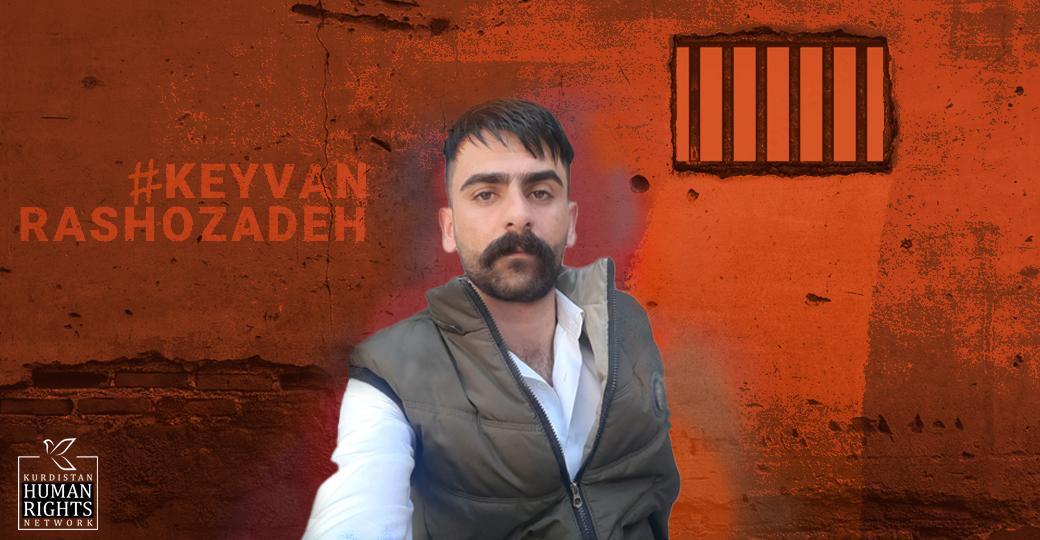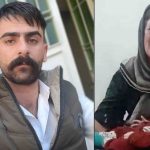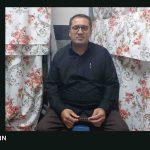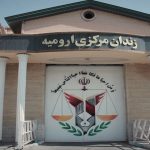Arrest
Keyvan Rashozadeh was arrested along with three other Kurdish civilians on 8 October 2019 by security forces in Orumiyeh.
After one month of interrogation at the Al-Mahdi detention facility of the Intelligence Organisation of the Islamic Revolutionary Guard Corps (IRGC) in the city, he was transferred to the youth section of Orumiyeh Central Prison.
Judicial Process
In December 2020, Branch Two of the Islamic Revolutionary Court of Orumiyeh sentenced him to ten years and one day in prison on charges of “acting against national security” through membership of the Komala Party of Iranian Kurdistan.
The sentences were later commuted to seven years and six months after his “submission to the verdict”.
Current Status
Rashozadeh is currently being held in Orumiyeh Central Prison.
Although he has served more than half of his sentence, he is deprived of conditional release due to opposition from the prison authorities and the Ministry of Intelligence office in Orumiyeh.
Additional Information
– On 22 February 2020, Rashozadeh and six other Kurdish political prisoners went on a hunger strike to protest their detention in the youth ward and to demand a separate room for political prisoners.
– In April 2020, he once again went on a hunger strike with several other political prisoners to protest his continued detention in the youth ward. After a week of hunger striking, he and the other strikers were transferred to solitary confinement by prison authorities.
– In November 2020, he, along with two other Kurdish political prisoners, Kamran Ghassemi and Omid Saeidi, went on a dry hunger strike to protest against the uncertainty of their situation, the pressure from the Ministry of Intelligence and the failure of the prison authorities to respect the principle of separation of crimes in the juvenile section of Orumiyeh Central Prison.
– On 12 December 2021, he participated in a week-long hunger strike with 46 political prisoners to protest their transfer to a new security ward in Orumiyeh Central Prison.
– On 11 January 2022, by order of the prison warden and the head of the Ministry of Intelligence’s special office in the prison, the prison guards raided the ward for political and religious prisoners, beat and transferred them to the new “secure” ward. In protest against this transfer, Rashozadeh and several other political prisoners were moved to solitary confinement.
– On 5 September 2023, he was transferred to solitary confinement on the orders of prison authorities for protesting against the harsh conditions in the political prisoners’ ward in Orumiyeh Central Prison. He went on a dry hunger strike for several days in solitary confinement.
– On 17 April 2024, Rashozadeh was transferred to solitary confinement after prison guard forces raided the section housing political and religious prisoners and physically assaulted them. He was then transferred back to the main prison yard, where he was tortured with baton blows by prison guards, as ordered by officials.
Notes:
1. Komala Party of Iranian Kurdistan: The Komala of Revolutionary Toilers of Iranian Kurdistan, known as Komala, a Marxist-Leninist organisation with Maoist inclinations, after nearly a decade of clandestine activities, publicly declared its establishment on 15 February 1979, simultaneously with the victory of the 1979 revolution.
In 1984, Komala and several other leftist Iranian groups founded the Communist Party of Iran (CPI), and Komala was renamed to Komala Kurdistan’s Organisation of the Communist Party of Iran.
In 2000, part of the party’s leadership and members, under a project entitled “Reviving Komala,” split from the CPI and reverted to their original name before the formation of the CPI; the Komala of Revolutionary Toilers of Iranian Kurdistan or Komala Party of Iranian Kurdistan.
The Komala Party of Iranian Kurdistan believes in social democracy and considers “establishing a federal government” the appropriate solution for the Kurdish issue in Iran. The central headquarters of this party is in Sulaymaniyah, Kurdistan Region of Iraq.
2. In cases where an individual accepts the verdict issued by the lower court and waives their right to appeal, they will be subject to the law of “submission to the verdict” and will receive a reduction in their sentence.



























